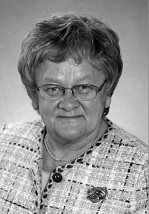The changed role of the Riigikogu
In Riigikogu Toimetised conversation circle on 22 November, four Members of the Riigikogu discussed the development of the Estonian Parliament during the last two decades.
The circle was attended by President of the Riigikogu Ene Ergma (Pro Patria and Res Publica Union) and the second Vice-President Jüri Ratas ( Estonian Centre Party) and Members of the Riigikogu Eiki Nestor (Social Democratic Party) and Rain Rosimannus (Estonian Reform Party). Riigikogu Toimetised Editor-in-Chief Helle Ruusing acted as the moderator and compiled a summary of the discussion.
When answering the question as to how the Parliament of Estonia has changed during the last 20 years, the participants in the circle pointed out that the current Riigikogu no longer needs to do such long working days every week as in the beginning of the 1990s because the state is much more “ready” when compared to that period.However, the position of the parliament in the society and the attitude of the people towards legislators have changed with time.Participants in the circle stated that, after the restoration of the independence, nobody had put in doubt the need for the parliament. At that time, it was clear for everyone that the state had to have its own legislative body who would rebuild the legislative space of Estonia.Today, good words are rarely heard about the Riigikogu and the Riigikogu tends to become marginalised in comparison to the executive power.This is of course no peculiarity of Estonia, as the participants in the circle asserted.The same has happened in nearly most of the parliamentary democracies and all solutions that have been offered to change this are unpopular.The parliament is an organisation and, obviously, it depends to a great degree on every member of the parliament how it looks to bystanders.Certainly, electors often set too high requirements for the Riigikogu as if they were expecting it to raise deep discussions with a very long perspective and to tell what Estonia’s own great achievement might be, like Nokia is for Finns.To hope that the parliament begins to invent some fantastically useful things for the state and the people is of course strange, to put it mildly, in the opinion of the participants in the circle.It was not the Finnish parliament who came up with Nokia in Finland, at that matter.However, with its activities, the parliament has to create in Estonia an environment in which this “Nokia” can be born.




